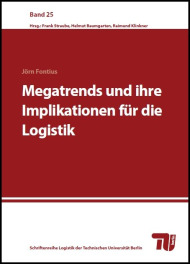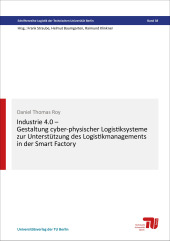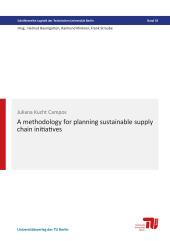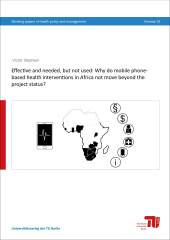Megatrends und ihre Implikationen für die Logistik
Ableitung von Wirkungszusammenhängen

Publishing year: 2013
Due to the far-reaching and long-lasting changes they set in motion, megatrends can be seen as a starting point for global economic developments and framework conditions towards which companies have to gear their activities. Logistics plays an ever more important role in this context and is fast becoming a decisive distinguish-ing feature in the competitive arena. Ongoing change is a fundamental characteristic of logistics and calls for permanent reinvention and reorientation. In view of the many current developments and their sometimes counteracting effects, the task of identifying megatrends and their impacts on logistics is complex and difficult. There are neither in literature nor in practice any consensuses as to what constitutes a megatrend, nor are the effects of megatrends clear. The aim of this paper is to identify, systematize, and assess the current long-term developments that are of relevance in this respect and to outline their effects on logistics. This realisation paved the way for the following three primary research questions: 1) What are the global mac-roeconomic megatrends? 2) How can we determine the effects of these megatrends on corporate logistics? 3) How can companies adapt to allow for the effects of these megatrends on their logistics? To address and answer the questions, the first task was to define the conceptual basis and the theoretical re-search foundation for the paper. Building on this, four prevailing megatrends (globalisation, innovation, sus-tainability, demand patterns) were identified based on an extensive review of the literature. A first theory-driven effect model was then derived using resource-oriented, situation-oriented and system theory ap-proaches. This model included eleven megatrend drivers, which were in turn linked with relevant fields of logis-tics activity. In order to answer the research questions, the specifics of the effect model were defined based on nine expert interviews (logistics decision-makers in German industrial companies). During the course of the interviews, it was possible to confirm the megatrends previously analysed in the literature and their eleven drivers. The effects of these megatrends on logistics were then determined. Moreover, it was possible to iden-tify 13 relevant fields of logistics activity that are affected by the megatrends. Even though the intensity and effect directions of megatrends differ, it was possible to determine by way of summary that the direct impact of megatrends is to increase overall complexity. Three dominant strategies to meet this challenge were identified: greater flexibilisation of the entire supply chain, more intensive coopera-tion across company boundaries and greater decentralisation of decision-making powers. This means that suc-cessful management of the effects of megatrends on logistics requires systematic end-to-end analysis of the entire value added chain and therefore involves all the direct and indirect participants in a supply chain.



